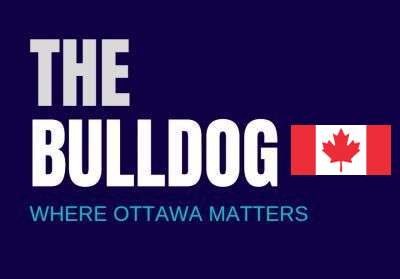What’s Next For Canada’s Military? BENN

What is the role of the Department of National Defence? More importantly, what should it be? The same questions apply to NATO.
NATO was formed in the aftermath of the Second World War when much of Europe was in shambles, battered throughout more than half a decade of war. A time when the Soviet Union was perceived to be a military threat that craved more territory. There was a concern among the western allies, including the U.S. and Canada that Europe was incapable of mounting any meaningful form of defence if the Soviets decided to expand their areas of influence south and west. Out of this necessity NATO was formed. A treaty organization that had at its core an agreement that an attack on any member of NATO would be treated as an act of war. That every member of NATO would respond militarily.
By the end of the 1950’s, western Europe had, for the most part recovered physically from the war. The debris was cleared. Homes and factories rebuilt. Infrastructure replaced with then state-of-the-art design and materials. Industries had re-established themselves. The ability of each nation to re-arm its national defence had been re-created.
Meanwhile, on the western shores of the Atlantic, Canada allowed its armed forces atrophy. Canada, just like the nations in western Europe, decided to rely on the U.S. as its primary form of defence. The closer physical proximity made that political decision so easy.
CANADA: Nukes And Mandatory Military Service
Under then-prime minister LesterPearson, Canada shifted its defence policy toward peacekeeping. An honourable objective that no subsequent from which no prime minister has strayed. One that has been well-performed by our military. But peacekeeping is very different than peacemaking, which is just a euphemism for war. The nature of the equipment differs profoundly. Just as importantly, the nature of political commitment differs.
Three-and-a-half decades ago, the Soviet Union imploded, and with it the perceived threat of Soviet military aggression. Germany re-unified. Many of the nations that were part of the Warsaw Pact shifted to a more western style of economy and governance. Some joined NATO.
Notwithstanding a material change in circumstance, NATO has not changed. Its member nations, already complacent with the idea that the Soviet threat was not imminent, were happy to leave the role of deterrence with the U.S. President Donald Trump pointed this out during his first term in office. Then German Chancellor Angela Merkel recognized this, telling her counterparts in NATO that it was time for Europe to materially improve its capabilities to defend itself. Yet here we are, more than half a decade later, with a resurgent military threat from Russia. Yet much of Europe remains unprepared, relying on the U.S. to solve the problem.
Organizations that fail to adapt to changing circumstances seldom thrive. Many fail. Anyone remember how dominant Sears or Kmart were in their day? How about Dominion Stores? Care to chip in on the right-sizing of The Bay? These organizations did not react on a timely basis to the changing competitive environment and now the only value their share certificates have is as collectors’ items.
It is premature to talk about specific elements of a solution, such as conscription and developing a nuclear deterrence. Rather it is time to have adult conversations about what the role of Canada’s armed forces should be.
Here’s a concept, not because it is right but rather to encourage the requisite adult conversations.
The primary role of DND should start with being able to defend the nation. To detect threats before they arrive, not after it is too late to respond with an array of satellites and radar detection points pointed in all directions. It would include coastal patrol ships, aircraft and missiles capable of intercepting threats before they arrive. A ground force that has the equipment to get to where the flash points are well before it is too late, armed with the equipment to defend the position. It would have enough supplies to last well beyond the time required to re-supply with a procurement system that is focused on getting the equipment and supplies delivered, rather than on whatever our existing procurement system actually does now.
We need to ensure that our capabilities are integrated into our role with a reworked NATO. Canada should agree with our treaty nations what roles this country will support in a NATO exercise, whether it is for training or in response to a real threat.
Schiff Has U.S.-Canada Split Wrong: THE VOTER
Canada is geographically large, with a significant portion of its perimeter a long way from where the bulk of the population resides. We need to focus our defence resources on where they can be deployed most effectively. This translates into ensuring that our support of NATO missions needs to be more focused. Moving our naval and air-defence resources long distances takes time and limits our ability to defend the perimeter of the country. Participating in ground level defence is where we should focus on what the role of DND should be. Only then should we start to develop a strategy of how to equip our military to accomplish those objectives.
Ron Benn, a finance executive, has been a member of the Centrepointe Community Association for the better part of three decades.
For You:
POILIEVRE: Are You Trump Or Not? THE VOTER
The Many Dangers Of Poilievre’s War On Woke
Liberal Support Takes Slight Tick Down: POLL
Bookmark The Bulldog, click here



Much as we detest DumbOld Trumpf we should be happy for the wakeup call after decades of slumber with regards to growing our military. Naively we thought that the United States could always be counted on to look after us in the event of attack from an unfriendly power. Shame on us for not meeting our commitments to our allies in NATO with respect to meeting our spending targets based on GDP.